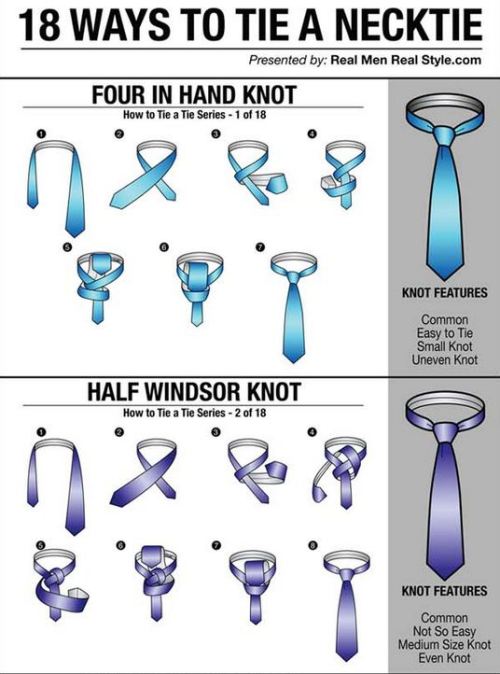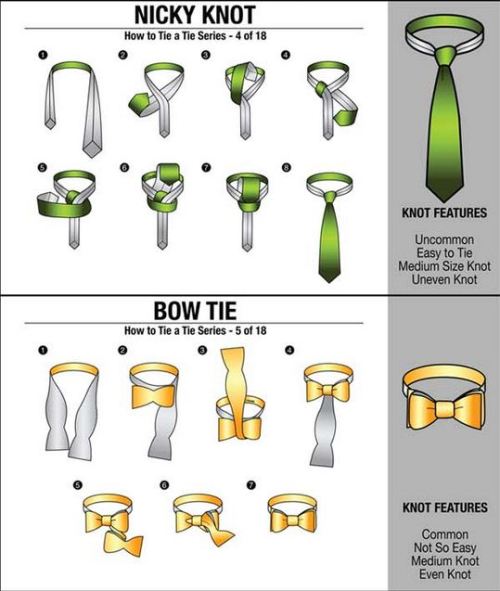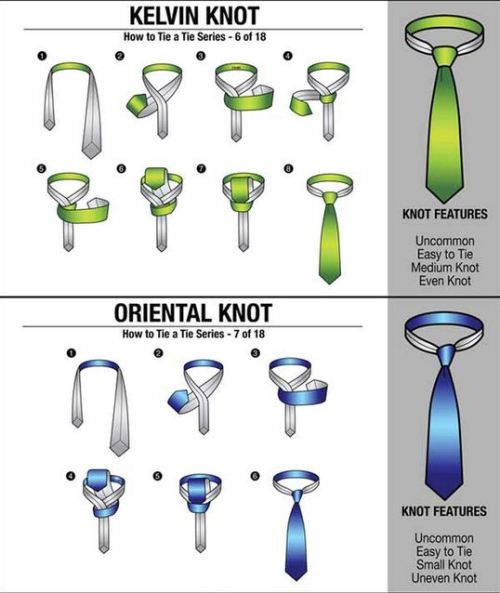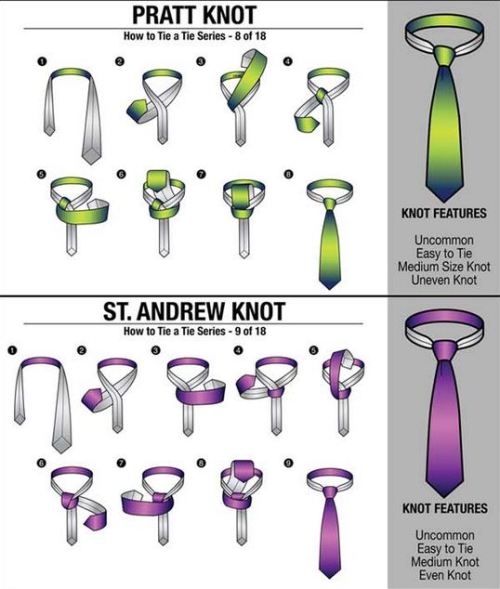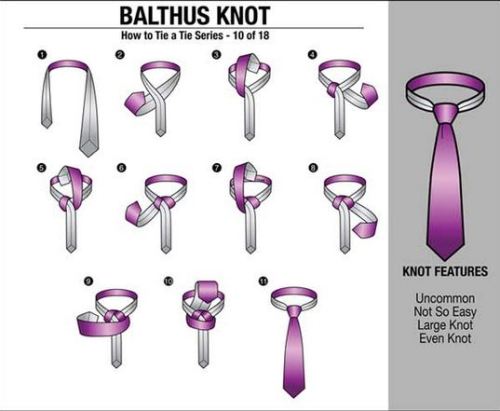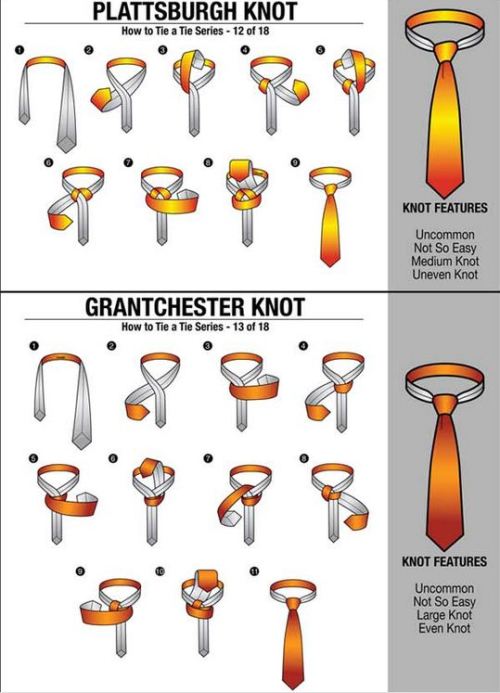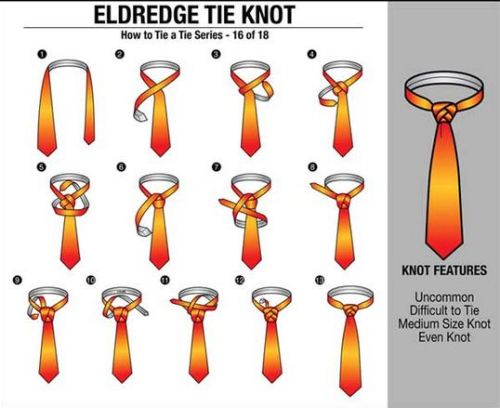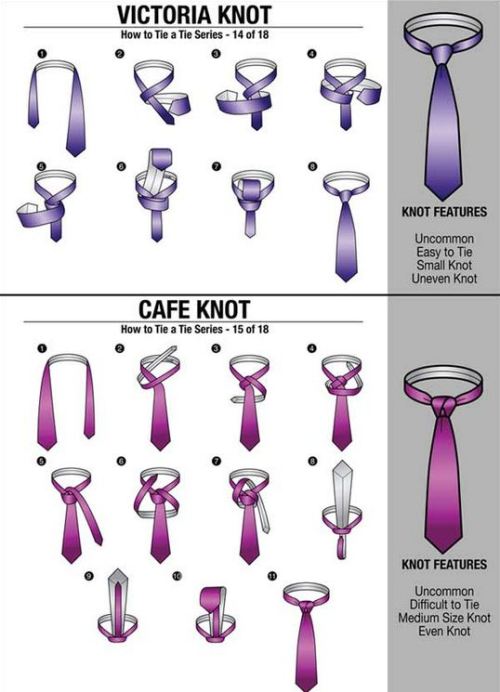I mostly write. Read at your leisure but remember that my posts are usually produced half-asleep and if you confront me for anything that came from me I will be surprisingly fierce and unforeseeably collected. Although I hope we will agree and you will have a good time.
213 posts
Latest Posts by bernatk - Page 4
You: I could say it's complicated but then...
When I was sixteen I read The Great Gatsby, and oh - Oh! I said, how it flows, how does this gorgeous iambic pentameter work its way through the valves of my arteries? ‘Within and without’ runs in my blood. Everything sounds like money to me. I wandered lonely as a cloud, only, no, old sport, I don’t wander, I plan. I lift weights like Benjamin Franklin. I gaze out, out, out, I am the poet. I am the huntsman. I lie in wait. I have for years. Sometimes I forget about The Bell Jar, but I remember The Iron Giant. Let me tell you, I’ve watched that movie every year of my life since I was seven years old, and I fell in love with the robot from a children’s story book to the big screen. I have since studied Metamorphoses and watched the hawk fly through the rain, but choking to death on my own breath? A touchy subject. What does F. Scott Fitzgerald have to say for himself when his wife’s journals lay strewn across his back catalogue? Where was Ted Hughes when Sylvia Plath collapsed in the kitchen? Boasting about his own work, or belittling hers? In 2008 The Times ranked Hughes fourth on their list of ‘The 50 greatest British writers since 1945’. Where is Sylvia Plath? Where is Zelda Fitzgerald? Where are the women? Where are the gentle hands, the voices that clink like coins, where are the dangerous curves, where is the soaring fire of our generation? Show me your nails, filed to claws. Give me your ragged hearts, give me your tired, your poor, Your huddled masses yearning to breathe free, give me your words. I want to hear your voices, louder and more insistent than ever before. I want The Times to write a new list. I need to hear the murmurs of agreement of every lecturer in the Arts and Humanities department of each university as they turn it over in their hands. To see a split between every gender so even that no one remembers where the line is, where the line ever was. This wave’s classic writers are gone, so bare your teeth and show me your fighting stance.
we are still behind the yellow wallpaper | ishani jasmin (via ishanijasmin)
So beautiful, so complicated, so problematic...
Breaking the Ice
For about half a year I've been stuck. I haven't written a single word worth mentioning. And that's a problem if you're trying to write something. I had a conflict that I had to rewrite before the climax of my story and nothing worked. I resolved I would not progress with he whole novel as long as this problem is not solved and today, with pride I say, I have solved it. It's possibly the sweetest, neatest, greatest, most dynamic, most intense part of the whole thing.
But why couldn't I write it? I've been in a bittersweet relationship with the Creator of everything. Last time in church, the scripture said that what the Lord requires of me is:
to try to live in love,
to live according to His laws,
and to be humble toward Him.
None of the above has been fulfilled lately. But He reached down to me and, so openly, he set the rules for me. I was finally told exactly where I'm lacking. Everywhere, apparently. But it's good, it's really the best. I finally know that I should do these three. And I'm so thankful! Knowing this is salvation. I'm saved... once more. This is the biggest thing of my life and now that it's done--not for the first time, sadly--life can/must move on for me. Move forward ;)
An Open Letter to TFioS
Dear TFioS,
I got you for Christmas and I watched you in the movie-theater last Saturday and I like you. I like you but that doesn’t mean I don’t have something to say to you.
Of course your unorthodox and irreverent plot is refreshing and it really talks to people in many ways. This is somehing that people are craving—what I personally am craving and thank you for being this way. A book review said that you are “damn near genius” and you are so. It sounds like a huge compliment (one that I’ve never received, so I sort of envy you for it) but this isn’t the greatest one, which would be:”it’s genius”. John Green is made of awesome and so are you, TFioS, still, neither of you are made of genius. Let me elaborate:
#1: Is the fault really in our stars? John Rawls would probably congratulate you on the fine point you have made about how nature is creating random inequality and unfairness. What mindless animal would one have to be to say that it is fair what Hazel and Gus went through, none of it out of their own making or desert? Their example—and the title really—shows what a great fault there is in what our lot is in life. It would have been fair if Hazel and Gus’ cancer was given to an evil mass-murderer—yeah, I don’t really mean that; no one should get cancer, ever. You tell it wondrously that no matter who you are or what you’ve done, this sort of pain is unbearably immense. Everyone deserves the same and that same would be a normal life, which is free of disease, free of tragedy, free of all sorts of bad things. Everyone deserves it because of human dignity, which is everybody’s. When Gus calls Hazel to the petrol station to help him because he got very sick, we get to see the unromanticized version of dying from cancer, which is the true version of dying: painful and miserable. This whole thing is an attempt to introduce us—through characters we get to care about and truly heartbraking events happening to them—to the reality of undeserved suffering in the world. I used the word:”undeserved”, but is it really? It would also be fair if everyone on earth was suffering the same as these kids, wouldn’t it? As I’ve said before, only a terrible person would say that, and that’s because of human dignity. And where does that come from? One could say that:”Yes, people do terrible things sometimes but no one deserves to suffer or experience pain.” Such a statement would be based on the concept of dignity, which’ existence we can only assume, following our moral compass, our feelings. Naturally, I wouldn’t say that there’s no such a thing as human dignity or that I want to see someone go through this hell. My point is that the origin of dignity is not inspected thoroughly and it cannot be a groundless assumption. If we built on it, first we’d need to see why it’s an unshakable foundation.
#2: Infinities are problematic. I’m not going to discuss the mathematical inexactitude of your statement about the size of the infinity between 0 and 1 compared to the one between 0 and 2 because you’ve already apologized for that and also because it doesn’t really matter. At the end of the story, when Hazel remembers her time together with Gus, she is really grateful for their “little infinity”. I suppose she means that their relationship and their experiences were immeasurably valuable, even if smaller in number than the one’s of someone with a greater lifespan. This serves as a poetic and sublime element, though it also implies that even where there is great pain, there’s beauty. But if all that is equal in worth to what other people have, then why is it sad that they have to die? Or is it not sad at all? Is it okay for them to have to go through all that horror and then die so young? It’s rather terrible—or unspeakably terrible. But if only the quantity and the length of beautiful things in life matter, what’s the limit of having a good life? If everyone had the same amount of happiness and the same length of it and an equal lifespan, I suppose that’d count as a good world. But wouldn’t we try to extend the length of our lives if everyone was to live 80 years already? It would be neat if everyone lived for 200 years, wouldn’t it? And if Hazel and Gus were to live 80 years, whereas everyone else 200 years, would that count as a tragedy, too? Is it just the relative length and amount that matters or is it the absolute of them? It seems that both do: we want a relatively and an absolutely longer, richer life. That’s alright, of course. The ultimate thing we would settle with is infinity—literal infinity, not just the allegorical one. To have Hazel be grateful for what they shared is really awesome, my point is really what this tells the audience is unclear and/or indefinite.
#3: Where’s that extra mile? When Hazel and Gus are talking about what comes after death, I thought some conclusion would be made. Okay, there was actually this: even people, who believe in something transcendent aren’t necessarily morons. Thanks, I appreciate it, but whether or not there’s an afterlife, or whether or not God exists, these are sort of important questions. Especially when you’re so conscious about your imminent death. The whole thing is understandable, of course, since to someone who is not a believer, it’s obvious that there’s no Heaven, no Lord, no nothing, yet I was extremely let down, when Gus said that there has to be a point to it all and Hazel’s reply was about the overall pointlessness of everything AND then no distinct conclusion, apart from what’s above. It’s nice of you not to take away the hopes of christians though. But to make two teenagers so profound as Hazel and Gus are and then just let them be diplomatic about the point (or the pointlessness) of being is just lazy. It’s popular to think that a writer’s duty is to ask important questions but it is also their duty to offer answers to important questions and not be like:”Yeah, ‘A’ might be the ultimate truth, but whoever says ‘B’ is it, well, yeah, they’re totally cool to say that.”
Okay, TFioS, I’m sorry for criticizing you, I don’t mean to hurt your feelings or something. You are a beautiful book—you never forgot to be awesome. Thank you for existing and thank you for feeling the pain of everybody, especially of those who feel the greatest pain.
Best wishes,
B
P.S.: Okay.
Thanks for making my favorite video
Today I made your favorite video. You’re welcome.
a wonderful event in the life of a truly wonderful YouTuber :)
I’ve been a Christian my entire life, but wasn’t baptized as a child. That changed last night, and I feel incredibly blessed and humbled.
Wish I could do some of that
Been doing a lot of not practicing to get this good at parkour.
I am the midnight of a soul I’m the other side of the wall The fissure between the tops Ever-hunted blood-red fox I am the glimpse of a thought I’m the wave broken by rocks A mystery of nothing Trapped, caught by snares whilst hunting I am the smoke of a burnt-out candle The smell of night The sight of blinds I am the broken glass’ torn-down handle The weight of light The might of fright But dawn follows the night I’ll enjoy an eagle’s flight And I already know Why I wait tomorrow
(via bernatk)
I got that same feel now, more than a year after writing this, though nothing's the same really ... #revival
First of all: get some sleep.
I am going to offer you two arguments. One of them is as rational as it gets and the other one has a personal example.
#1: As much as it's necessary to realize how things change, how everything's transient and how life can get fairly random, it's way overrated.
HIMYM is a sitcom and it's unjust to set high standards for it, I understand that. But I think my expectations should have been met by it because I didn't want it to end with an ultimate moral that somehow makes everything click. Of course no show can run without standing for something, however irrelevant or stupid that thing might be.
The arc of HIMYM and especially the finale really focused on the dynamics of the core five characters but other than that, the dynamics of life. It is a good observation that things are in motion and that cruel things will happen to everyone, undeniably and unavoidably. I further say that it is an important observation, since one may find him-/herself in the false hopes that maybe a good state of things, a good part of life may be preserved. That way of thinking ought to be reformed, illuminated, as it would eventually lead to bitter disappointment. So I accept the value of this point.
On the contrary, it is inadequate. The lead singer of Switchfoot, Jon Foreman, once said it in an interview that today's people have lost their connection with death and danger. If you read Hemingway, many of his characters meet their ends at some point of the story and it's really not a big deal (in the sense that it's not the end of the world, though death's always a big deal, even in Hemingway's works). I was really surprised by the way Robert Wilson teased the woman, who just shot her husband about how their relationship was already pretty bad anyway in The Short and Happy Life of Francis Macomber. It wasn't a weightless, irrelevant thing, of course, even so, it was the climax of the story, yet Robert Wilson's reaction was different from how, for one, I would react if I saw someone die. This isn't because of Hemingway's particular relationship with violence but because of a more general concept of life--one that's changed over the course of time.
Our culture has been softened so much that it'd be enough for us to realize that things come and go in life. It is treated as a great revelation because we live in much greater safety and we're pretty sure that our safety will not be seriously endangered and when it is endangered in someone's life, we consider it radical. We're so blinded by our security that we don't see past the possibility of change, whereas it would be mandatory to know how to act in case life should bring a wave of it toward us.
I say that a good story can't stop when reaching the so popular phrase of "the perfect imperfection of life" but rather it should offer some sort of remedy. To try to give us options and hopes is what I see as the primary mission of a writer or director.
#2: Hard things don't always happen to us but they are often made by us.
As much as Ted couldn't save his wife, Robin and Barney were completely responsible for the end of their marriage. One could argue that it was "written in the stars" but their personality traits did not determine how their romance will conclude.
Henri Nouwen wrote: "In the depths of my being, I meet my fellow humans with whom I share love and hate, life and death.". Everybody has certain flaws that gradually alienate their partners or that make being married to them difficult. These flaws differ from person to person but in one form or another, they are unquestionably there. It is also true that everyone shares the ability to love.
It's always an invalid defense to say that one was not a good match because of certain qualities or the lack of them and thus the divorce. I wouldn't argue against saying that someone wasn't the one but that should be realized before marriage and not years into it, though it's a sidetrack and I should return to my point...
Let me elaborate by pointing out something in my own life. I've been in a romantic relationship for over three years now. I intend to marry this girl sooner or later and I also intend to be nice to her. Furthermore I'm madly in love with her, what's not a bad thing once you want to marry someone. But there are moments, much like instances of insanity, when I feel distant from her. Sometimes certain traits come into focus that are flat out antagonistic in me and her. I have felt the capability of breaking up. If I ever wanted to end our relationship, there would have been moments for that. Of course, I never wanted to break up with her, that's why we're together, but my point is that I understand how it is in everyone to end a romantic relationship, as I know it is in me, too, whereas I also see that it is also in everyone to hold on to someone, as it is in me, just as well, and as I intend to live my life.
So I say that divorce is not an article of change that happens to some people, inasmuch as it is based on personality traits.
I never made it an issue whether or not the show would have a happy end or take a more dramatic turn. (Personally, I prefer sad ends--well, not in all cases.) And I know it's nonsense to say that a TV show is wrong, especially to say that a sitcom is wrong--but How I Met Your Mother is wrong :) JK
PS: I say it again, have some sleep. Seriously bro.
The famous sit-com, How I Met Your Mother, reached its end finally. It’s been greatly anticipated by many and is currently being hated and scorned by even more. I’ve heard countless negative comments on it but as most people aren’t philosophers, nor particularly good at deeply analyzing films,…
word
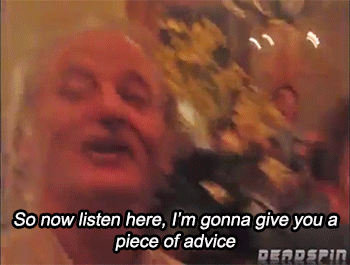
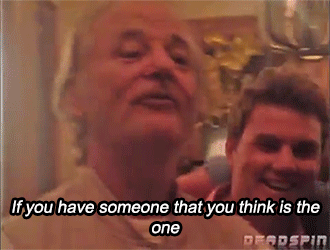

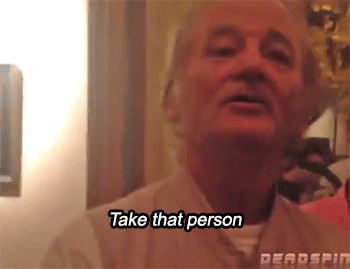
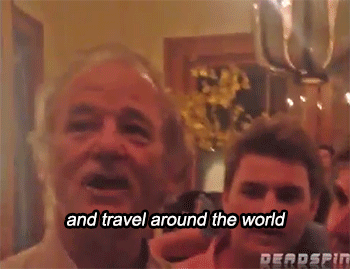

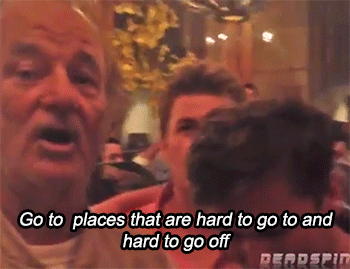
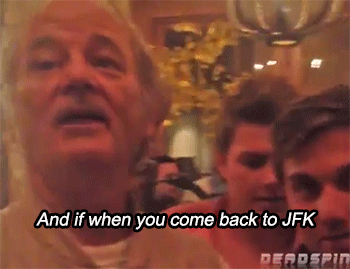
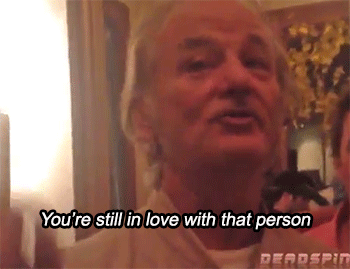

Bill Murray Crashes Bachelor Party, Gives Awesome Speech - Video
young Shakespeare has done it again. actually no, he's not young, he's thirty-something and that's technically dead. still, pretty powerful suff for an old man
Visiting Chyna’s family in Kentucky and I saw a gazebo and figured it needed to have a song about it.
What is Brendan Eich?
Nearly everyone has heard of how Brendan Eich, Mozilla's former CEO, stepped down because of a scandal around his contribution to an organization that sought to ban gay marriage. Conservatives and liberals have been engaging in heated debates on this matter and this post isn't to determine who's right or who's wrong. What it is meant to discover is the phenomenon itself.
The interpretations I've encountered are:
#1: Opposing liberals meant that Eich made a strategically wrong step. Admitting to failure, he decided to step down.
#2: His personal standpoint went against the very mission of Mozilla, which was not creating profit but spreading openness, freedom and such with a diverse community.
These arguments. however, don't directly lead to the actual consequences. The reasons why these are misleading, inaccurate arguments are:
#1: Even though in politics and everyday life we all try to bring our own views to victory, a liberal couldn't oppose Eich. A liberal answer to his donation would have been nothing but total respect. That is because such a reply would be in favor of diversity, although all-inclusive includes the ones, who don't agree even with inclusiveness. There are many forms of liberalism but none of them would scold Eich's contribution to that organization. In summary, he couldn't oppose liberalism in a way that would lead liberalism away.
#2: Brendan Eich made his contribution as an independent individual, back in 2008. Now he spoke against everything that could oppose the gay society. He realized that holding up such views would definitely infringe Mozilla's mission. Still, his altered position promoted diversity. One could say that he is responsible for the collectivity of his actions but he actually faced this past act of his, trying to make it fit to the company's mission. Opposing Eich would actually mean failing this mission because at least toward him they close their imaginary gates and would exclude him.
What I'm trying to articulate is that there cannot be any idealistic reason to support his stepping down. On what grounds do many support it then?
(Before making my thesis, I want to note, once more that I'm not saying Eich was right or wrong when donating to the anti-gay organization, neither the same about his stepping down. Now back to the point...)
What this case tells us is that though people sympathize with liberalism or communitarianism or anything else, most of them don't actually belong to them. Eich's opposition (the kind, which doesn't only have a different view but instead is actively against him/agrees with his resignation) doesn't consist of liberals or any other group of idealists, instead of people, who may sympathize with them but they themselves are essentially different.
Carl Schmitt wrote that the main function of politics is to distinguish between friend and enemy. Schmitt wasn't a liberal--more importantly he wasn't an idealist but a realist.
Eich's opposition makes an enemy out of him. They called on Mozilla users to uninstall their browser and stop using their products. They took up a fight against him with smart methods, ones, which were enough to make the continuation of his being a CEO impossible.
It's not a question whether or not Eich was right but whether or not he is a friend to us. Not a liberal community opposed him but rather a realist one that, at best, only serves a liberal community. They can sympathize with liberals but they can't be them.
The reason why I thought this whole matter important to see is that it's not the age of idealism any more. Of course I can't deal an absolute in regards of this because the political sphere is very mixed and while there are realists in it, we can just as easily name another huge group of idealists. My ultimate point is that this presently emerging trend is, contrary to popular statements, not liberalism, or any other form of idealism but realism instead, where one can't rely on rights or morals, only on the inclinations of those, possessing power.
i was with a new friend yesterday and he was telling us how he worked on a maple syrup farm and then he kind of pulls me aside and was like “hey don’t tell anyone but i can get you some maple syrup at a nice discount price but technically it’s not legal but let’s keep that on the down low” and i think i just made friends with an illegal maple syrup dealer
Well, bravo. I'm a huge fan of capitalism myself. It's great to see well thought out arguments like yours.
There's only one major issue that I've identified: This isn't about capitalism--it's about libertarianism. I'm not sure if you've read Nozick's Anarchy, State, and Utopia but that's the thing for you.
Robert Nozick talked a lot about the minimal state, a concept that celebrates economic and moral freedom of the individuals and gives only limited role to the state: creating a legal system that protects people's property and guarantees the validity of contracts. This is very similar to your reasoning but it's libertarian philosophy and not directly the theory of capitalism.
Capitalism and libertarianism seem infinitely intertwined. Even so, if you look up the definition of capitalism and study the main ideas of libertarianism, you will find yourself wondering if the two are separate at all. They actually are. The U.S. didn't cease to have a capitalist system under Obama's presidency, though he's definitely not a libertarian.
In today's world, after Keynes and his successors, we have a mixed economic system, that's not laissez faire but it's also clearly not communist economy. The state does this and the state says that, courts rule this and that way and many complain why we don't have the original capitalist freedom. So why is this? Is this something good?
I could bring economic arguments but I'm sure I'd be making mistakes but more importantly the reason for having the current system can be found in political considerations:
#1: The market might always find balance eventually but, in the meantime, individual lives, which' survival are dependent on economic safety, can be hurt. So the economy of the country may find balance after a year or two of necessary fluctuation but in those years a family may go bankrupt, people can become desperate and not all of them are good-enough economists to be able to avoid undergoing serious losses. You said that these are inevitable casualties but politicians found it otherwise. More on this later.
#2: In a competition the strong/smart prevails and the weak/feeble-minded stays behind. You understood this as the order of nature. But nature isn't fair. We can say it's random and random doesn't equal fair but receiving in proper proportion in accordance with one's desert is. Being born strong or weak clearly has no relation to our desert.
According to Weber, capitalism was an unavoidable consequence of the emergence of Protestantism: People experienced a new freedom and the sensation of equality and autonomy spread very fast. And of course capitalism was a much better system than feudalism that preceded it in Europe. But it seems today that capitalism is and has been evolving.
You found morality in rewarding the productive and by the promise of these rewards motivating new members of society to become productive. It is, in fact, very moral, however, this can mean in a way rewarding the capable and ignoring the incapable and that is immoral. Why? Because no one made themselves capable. You might think hard work is your own merit, though if you can work hard it means that you have sufficient concentration and the sufficient abilities. These depend on genes and other external variables, so they do not originate from your own doing, ergo it isn't moral to reward you for something that you just happened to have.
I have introduced some political and moral arguments against laissez faire libertarianism but what are ideas for corrections--you may ask--nobody asks this, of course, but it's good to think that I'm not writing to myself...
One of the most famous political philosophers of the 20th century, John Rawls, recognized how libertarianism is unfair and so he said that a system should be formulated from behind the veil of ignorance: We decide without knowing what will be the most profitable environment for us, only considering what will surely be beneficial for everyone, since we can be successful salespersons or Hispanic cleaning ladies. Of course the veil of ignorance is an abstract thing, not something real, but it is a fair concept. Or is it?
Even Rawls came to realize that even though capabilities are contingent, the able should not be withheld their reward because they used well what was given to them. So he created the difference principle: Inequalities may exist as long as they are profitable to the whole community.
Politicians seem to have adopted Rawls' ideas, though in a very weakened way (for which I am grateful by the way). What we see today is capitalism but fixed with the tools of fairness. Politicians understood and admitted that capitalism is a clever system, working very well most of the time, but they also said that people should be protected and aided because not everyone can stand their ground in an economic competition. They decided to help the weak because politicians can't settle with inevitable casualties of any standing economic system but they ought to bring welfare to the whole community. In the other hand, politicians can never ignore what is owed to the productive and able.
At the end of the day, though, I still root for capitalism because so far it's been working nicely. What must be observed in this question is that this system has been based on morals and values, not on figures and balances. We should be critical and be critical with the eyes of the idealist and not the pragmatist.
Is capitalism working?
I believe that people should be left alone and allowed to succeed or fail. People need liberty and a system that guards their liberty.
I love capitalism. Capitalism is good but it has a bad name. It’s not primarily about capital and investing. It is about property. As the legal thinker William Blackstone wrote:
There is nothing which so generally strikes the imagination, and engages the affections of mankind, as the right of property; or that sole and despotic dominion which one man claims over the external things of the world, in total exclusion of the right of any other individual in the universe. [Note: By “despotic,” Blackstone means “absolute.”]
Read More
How I Met the Most Terrible Woman
The famous sit-com, How I Met Your Mother, reached its end finally. It's been greatly anticipated by many and is currently being hated and scorned by even more. I've heard countless negative comments on it but as most people aren't philosophers, nor particularly good at deeply analyzing films, this popular negative attitude toward the finale of the show rests on feeble limbs.
Two main groups of degrading opinions come to my mind that I've heard:
#1: It's a letdown because we've been driven to believe that Ted would finally arrive at a point when all his misery ends and his life magically becomes complete. This state could be transient but in the final episode it lasted for only a couple minutes and it served the sole purpose of building drama, which is truly not an elegant act.
#2: We've been lied to because Robin and Barney were meant to stay together. They would have been the true success-story of the show and now it's gone to smoke.
These arguments wouldn't stand the ground against strong reasoning because they aren't based on reason but on emotions and taste; and we all know the Latin proverb: "Taste is undebatable." They aren't satisfying arguments to the opposition because they are not smart ones. On the contrary, nobody can argue against them rationally because they are built upon expectations and what we expect is our own--there are no right or wrong expectations, only fulfilled and failed ones.
Shortly after watching it I was hesitant as to what it was meant to be: an ever-hopeful romantic or a disillusioned realist piece. A friend of mine said quite cleverly that it was a disillusioned romantic one. At first I thought it was a brilliant phrase but then I remembered Fitzgerald's Amory Blaine:
<"I'm a cynical idealist." He paused and wondered if that meant anything.>
There are terms that just don't make sense, even though the young egotist feels as though he's said something utterly sharp. This friend of mine is actually a lot smarter than me but in regards of this he made a mistake. A romantic, by definition, has his/her illusions.
Of course I'm not Immanuel Kant and I'm not trying to build an argument on semantics. My point with this is actually that I understand how this ending seems like something smarter than what the great contemporary romantics could dream up and yet with a stronger emotional core than what any realist could invent. It truly creates the illusion that it's a smart ending. But I find it at best average.
Smart people, who've mostly responded positively to HIMYM's finale, often argue that:
#1: It touches on the perfect imperfection of life, how nothing good lasts and yet how Good is omnipresent.
#2: It's the only way that the whole franchise makes sense, since the conclusion explains why this story had to be told in the first place.
#3: It gives us hope that something waits for everybody to make life worthwhile, even in the most surprising forms and even multiple times.
These seem pretty logical arguments to me, however, they are marred by a certain intellectual leniency--that what's smart and realistic, always promotes valuable concepts. But that's not true.
The fatal flaw of HIMYM is that it limits life to a race, where no one actually wins.
Think of Robin and Barney. They had a successful marriage that only lasted three years, what cannot be a successful marriage by definition. Success in marriage isn't depleting a cup of joys and experiences: people vow to keep together to the end of their lives, not to the end of their happiness. Of course, I understand divorces and I don't deny anyone the right to get a divorce, but they exist because sometimes the married couple fails at their promises and that means the failure of their entire marriage and failure is the antonym of success. It's impossible to say that it's a successful marriage but also a failed one. It may have had some success but not a fullness of success.
Think of Ted and Tracey. They were soulmates, destined to be together, and they had their time and they were happy. Then the story contradicts itself and Tracey dies and the concept of the one dies with her. Why does Ted go back to Robin after his marriage? It's not that I'd reject a story where two, who are not perfectly fitting, but loving and caring and willing get together and struggle to live out their love, which naturally has a number of difficulties. That's actually a good love story. But how did a perfect marriage not change Ted essentially? How come does he go back to a failed relationship?
In summary, in the finale there are 2 important points that I find problematic:
#1: Ted arrived at the point where everything started. Maybe things would work out now--maybe not. What is for sure though is that a relatively lasting romantic relationship (a marriage) and parenthood did not alter his concept of where to turn for love. He goes to the same person with the same gift as in the very beginning of the series. What it means is that Ted takes an escapist standpoint and views lived-out love as the primary value in life. Actually not the primary value but much rather he finds everything else pointless because nothing added to or took away from his life: tragedy and great happiness. Ted did not gather true wisdom--he gained nothing but a big number of memories, which hardly correlate, as they eventually take no effect.
#2: Barney's been emotionally crippled by Robin. All the characters point out that he should move on and move forward because even though divorce is a tough issue, one must be able to not become the Barnicle afterwards. What isn't recognized is that divorce is beyond human capacity. It's very nice that Barney becomes emotionally capable through finally becoming a father but the weight of him being emotionally crippled can't be put on the shoulders of a baby girl. It's not that a young girl can't be very strong and do wonders but that it's not normal and natural--it's tragic. There's not a normal way of getting past a marriage but marriages are to be saved. The story runs into a wrong moral that looks very pretty but is actually misleading.
I write this post at about two in the morning so some of my points and arguments are missing and the remaining few is also mixed up and confusing but I felt it important to write this post. Life can't be a cruel balance of happiness and grief. Life isn't a pointless circle. I say these not only because I am a christian but also because philosophically they are great and painful simplifications.
Noah vs Christians
My political philosophy professor once said that philosophical texts argue against something. I originally intended to critique Darren Aronofsky's Noah but I've been overwhelmed by the many unjust (well, in some cases) reviews. So what I'm writing right now will not be a crystal-clear stand-alone critique but it will be also an argument against others.
I will begin with the harshest criticism that I've heard so far: It is a falsification of he biblical Noah story. It was actually a bit of a surprise to me because I am a christian myself and it never occured to me. What must be observed is that it is a dramatization, which means making something into a drama. A drama is a piece of art, like a painting or an opera. If the crucifixion is painted, does it falsify the Bible by the characters not looking exactly the same as they actually looked? No. If Noah is a dramatization, one must look at it as an independent artistic feat, which in no way attempts to replace, say, the teachings of the Bible. Someone said to me that those, who don't have a basic knowledge or understanding of the Noah story, will watch Aronofsky's work and think that it's the Bible. Well, it's problematic. I can't imagine this becoming a thing. This isn't a hundred percent true, of course, so there might be people, who would fall under the impression that it is a true depiction and it is, of course, acceptable to advertise that it actually isn't but nothing further comes from this, like saying that it is actively against the Bible. In the other hand, this person did not consider how the christians, who think like him, will miss the actual merits of the film, while strongly concentrating on their preconcieved fears.
There was also the idea that the Bible's Noah was a missionary and he tried to actually save everyone from dying, instead of deliberately keeping them out of the ark. They argued that it is written in the New Testament that God patiently waited for the people who were otherwise condemned to death (1 Peter 3:20); and that Noah was a preacher of righteousness (2 Peter 2:5). It is a misunderstanding to think that these things go against the movie. They certainly aren't in focus because Aronofsky had other things he wanted to communicate. But the film's depiction of God isn't essentially untrue to this. Christianity's chief principle is that life on earth is not the complete life but instead, we have an eternal perspective. The Bible's truth is also about more than the truth that a flood will come: it is about God and his love for humanity. If we marry these two together we will see that Noah's missionary work was to save the souls of the poeple of his time, much rather than convincing them that they will be killed by water if they persist that they keep out from his ark. So, this aspect of the Noah story isn't represented, however, if people turned to God, gave up their wicked ways and were truly converted, even Aronofsky's Noah wouldn't have kept them out of the ark, even so, the whole deluge would probably have been cancelled.
Another criticism that I've heard was not unique to christians, even secular voices said this: In the movie, people are subordinate to nature. Noah seems to think the same and the bad guy, Tubalcain, says, what seems to be the modern approach, and it looks a bit like judgment of modern people because of how much they neglect their environment. To me it was much more like Noah had this inner conflict whether or not God wants mankind to continue existing but he never even entertained the thought that hierarchically the animals and plants would be superior to mankind. The animals seemed to have preserved the right to live through not being corrupted, on the contrary it doesn't equal being more valuable. What gives ground to this view is that Noah understands that he has a responsibility toward the nature. He should serve the animals but not be their servant or slave, much rather being a true master through caring and valuing them. Sadly, this is such an alien or radical concept that people tend to feel offended by it and feel that they are treated inferior to animals.
I heard something else, what really seemed baseless to me: Female characters are depicted in the light of the modern feminist culture, instead of what was present at that age. This argument was a real surprise because the first thing I said, while leaving the cinema was that in this movie the female characters were pretty traditional. Others argued that the way Noah's wife "told him off" would have been unimaginable at that time, since if the man says they cut down the wife's children, the wife will have her own thoughts, disagreeing with the man's decision but they will keep silent and watch he man deliver his will. Well, the first consideration we ought to make is: how long ago did Noah live? Very long ago but who can tell exactly? Nobody can. But someone said to me that the same system existed as in Abraham's time, since Noah's family was which started civilization again and so culture originates from them and Abraham lived in an early culture. This is poor reasoning because theologians may know quite a lot about a certain part of history but since every civilization comes from Noah and his descendants, so do older ones, like China. Abraham lived about 4000 years ago, whereas China started its career approximately 5000 years ago (these aren't accurate numbers, I'm only trying to give a sense about which one is the older). So to have the right to say that this or that was traditional in Noah's time requires thorough understanding of all of the ancient cultures, which the creators of this argument lack (I lack it about equally as much). We might think that hierarchical traditions precede egalitarian ones, while in China there have been egalitarian communities a lot earlier than the philosophy would have been borne with John Rawls in the 20th century. Of course, there has always been a hierarchical tradition in ancient China, too, my point is only that certain social systems seem to appear after a certain chronology preceding it and it's just misleading. Having made these precautions, I will proceed to my last argument against this line of reasoning. As Noah's wife even tells Noah, she stuck with him through everything, even through the annihilation of everyone on earth. She did as he has said and she helped him through hell without really ever going against him in words or in actions. So she never told Noah off. But when she says that she will abandon him, it is not that she stands up and starts a new family, or casts Noah out. She actually pledges her allegiance to Shem and his new family, so the authority that Noah used to have as the patriarch, is being withdrawn by the family, which' trust formerly constituted it.
There was a secular argument, which really confused me. Someone said that Aronofsky usually makes his characters suffer from a sort of obsession in his films and Noah's obsession is obeying God's orders. While I understand what this argument is about, I still find it overall confusing. Nobody can have this obsession because God gives wisdom and shows the way on which to walk in every field of life, ergo whoever is obsessed with God is obsessed with everything and that is not an obsession. In Noah's particular case he is exclusively focusing on what mission God has given him. He builds up the ark, he gives up human life on earth but eventually walks back on his decision. This can seem like having an obsession, then finally getting rid of it, still, I believe it is a wrong inerpretation. First, we see what happens, when Noah follows his vision: everything goes well and everything is justified by God, he always receives what is necessary for continuing. Then, at one point, Noah is going out to find wives for his sons and then he sees the true wickedness of humanity and that is what implants the idea that all the people should die on earth, including his own family. But this isn't God's message, it is Noah's own idea because he is afraid of the bad that's inside of everyone's heart. In the Bible we get to see that Noah's a righteous person and his heart is clean but it is, once more, a dramatization, and he finds himself equally evil. And though it is true that there was evil in Noah and all his family, he was still saved. Why Noah is trying to get an end to humanity is that he himself judges his own race, just like God has done formerly. We see the consequences of Noah's judgment, not the Lord's in it. Well, the Bible is not going into details of this sort but there never seems to be the same thing, so this is Aronofsky's addition. It is an ineresting thought and worth meditating on but I think it's quite clear that Noah was not really obsessed but actually conflicted.
The part where I "argue against" ends here. I will go on, though without opposing ideas this time.
What I found very profound was Tubalcain's inner conflict. He knew about the existence of the Creator but he lost contact with him, he has probably never had it. From the story of Pentecost we have learned that the Holy Spirit was sent to be the mediator between God and mankind only after that event and so having connection with God has been very different before. Tubalcain's in-film problems probably originate from the fact that apart from Noah, nobody had that connection, but since Tubalcain and his contemporaries were not long after Eden, where Adam and Eve had a daily and personal connection with God, they somehow craved it. There is a certain ambivalence in this because even though he has an honest desire to reconnect with the Creator he still is evil and he wouldn't think for a second of following God. Tubalcain thinks of the Almighty as equal but men aren't equal with God. He refuses the proud and accepts the humble. Noah is humble and it doesn't mean he would be weak or stupid, since he is the only righteous person in the whole world, which is quite an achievement. But returning to Tubalcain, I find it ingenius that Aronofsky made this attempt to explore the depths of feeling neglected or denied by God.
The last thing that I'd like to mention is the montage of murders: Showing people of different ages killing each other by different means, the people being only dark silhouttes before the red background. Aronofsky was truly creative with this one but there's more to it than the mere spectacle. First of all, it is in the contex of Noah's tale of the creation of the world, so Noah is reasoning with it against the continuation of the existence of men. But as we see that killing is present through all the ages, not exclusively in the ones that preceded Noah, is alarming. Even in the Bible, it is written after the deluge ended that the heart of humans is filled with evil. The very reason why the total population of earth has been annihilated ultimately persists. This is actually why the story of Noah matters so much: the crimes, for which once everyone was killed, are still present, yet we live. This doesn't make much sense in itself. Not at all, unless you read the whole Bible and you read about Jesus, who died for us. This is a brilliant thing, something that only God could think of.
A truly brilliant argument has been made here about the importance of representing diversity. All the points that have been made are understandable and more than that, they are deeply rooted in the world of morals. Once again, this is brilliant.
On the contrary, it is a wrong reply. Of course diversity needs to be represented and of course writers better think outside of the box. But to, and I quote, "call bullshit on whining about diversity", is aggression.
Taking up a fight against oppression and mis-/underrepresentation is a noble quest. However, when you put pressure on an amateur writer, in order to make them write differently because of the lack of POC or LGBTQ or other similar groups in their own work of fiction, you are, in a way using coercion. You use your authority without respect toward the person in question.
Writing fiction grants people absolute creative freedom. It gives them nonetheless when they start producing mistakes. A mistake can be in the nature of grammar or plot but it can also manifest in leaving out the diversity of our world from their fictional one. It will, in all probability, result in simply not getting published, or even if they get that far, not receiving a lot of praise.
Tolkien's work is criticized often because it is stereotypical. It originally meant that good characters remained good ones and bad ones remained bad. Contemporaries like to call it stereotypical because it involves no POC and such. However, Tolkien did not as far as consider anything but white folks because he had certain historical interpretations and theories, which he wanted to involve in his fantasy books. His ideas were about English people and French people and he mainly thought about the English people he saw around himself and not people from other lands.
Yes, Tolkien could have been concerned about diversity more and in the sense that we use this word today. Of course he did not, still he wrote relevant fantasy novels. Evidently, not focusing on writing about diversity does not equal failing at writing. Then it begs the question: if there are ways, where people do not include POC or disabled characters in their stories, still can become great authors, why is this blog so strongly against people, who tend to take up this other mental? I thought this blog is about writing tips and not political ones.
Now this is another question: can one write a blog, where, if opposed, his political views will not affect his actions and reactions? Naturally, this is very hard to imagine. Still, it seems as though central attitudes of the blogger and the writer meet in a conflict. But this is not true. The person, who tries to write and struggles to include 'diverse' characters, does not believe or promote that POC are inferior or that disabilities do not exist or whatnot. This person might be, in real life, a great supporter of diversity, even so, they might be homosexual. This question was in the nature of literature and not political philosophy or traits of personality.
I must return to a point I have already made. This is an aggressive, maybe oppressive response. The person, who asked the question, did not oppose anyone, they just failed to portray a group of people. It is a nice thing to encourage them to invest more and work a little harder, in order to understand others, different from them, but to say that they are wrong to not include such characters is unfair and flat-out oppression. It is because you, with your relevant authority, influence them to make a point in their writing, which they originally did not intend. It is just right to stand up for the people, who fail to do that for themselves, and I, personally, am with you there. But this is just writing. It is not professional and it is unfair to tell people what philosophy to follow when writing. One could stand up and tell people that they should exclude christian characters from their books because christianity promotes hate and inequality. (I must note that this is a false argument) But if people started to just use atheist characters, their stories would change in nature. (I must also note that it could be rarely applied because christian characters are seldom written and I think hardly anyone disagrees with this practice) The change, although, would not be because the list of characters would be less diverse but because the authors, who initially planned to involve them, had their reasons why they had that certain set of characters the way they are.
Writers can, of course, err and they should be encouraged to be empathic and thoughtful, it is a very noble thing, I say again. But this is not political propaganda for or against diversity, it is fiction. One could easily oppose me, by saying that at least implicitly it is against POC for instance, since they are not included. But the lack of promotion is not the same as opposition.
Diversity is to be promoted and encouraged, it is not a question, but a natural truth. But the only right way to stand up for a good cause is peaceful and requires a meek and humble soul.
Writing is not about your comfort. I have no idea who sold you the idea that writing is a comfortable, easy thing. Pushing yourself as a writer is part of the experience. If you feel uncomfortable about writing diverse characters, then you need to double down and commit yourself to doing the best...
A Question of Morality
Do we do things because they are the moral things to do or do we do them to achieve certain ends? I faced this question in a debate I had with my church's youth group's sort of leader. It was of course a peaceful debate--diplomatically ignoring my views eventually--but this question has been living inside me ever since.
I took a Kantian standpoint and argued in favor of the categorical imperative, whereas my opponent said that, the moral thing is to act to earn God's divine gifts in Heaven. And even though it seemed pretty obvious to me, in the past one week ambiguity has begun to cloud my confidence on this matter.
The heavenly gifts we earn for living a righteous life are quite naturally stimulating and indeed worth living that life for but I thought, that it is not the highest we can get. In my opinion--the one which I had then--acting out completely because of wanting to do the right thing is the most moral way of thinking. Only for the rightness of that action, not for avoiding guilt, or actually finding pleasure in it, or anything of sort.
Using Kant's reasoning however, would actually mean embracing the opposing view, not mine. Kant actually found God in morals this way. His categorical imperative suggests a certain joy felt over the moral act, properly proportionate to how moral the act was. Although he found a problem in this: say--and this is my example--you commit a crime but you have cleaned up after yourself well enough. Still, a clever detective somehow gets to you and you are persecuted. However, when being tried, you find a way to get away by adding just one more lie, that could clearly undo the validity of any evidence they have against you. Now you are faced wih the dilemma, that either you add just one more lie and get away, or act morally and confess. It is problematic to imagine a situation, where a criminal in the midst of trial starts to think about morality but let's accept it for the sake of the thought experiment. Now before moving any further, I add another crucial detail: because of the severety of your crime and the local laws, if you testify guilty, you will be executed on the scene without any delay. So now, acting immorally will just get you life, in which you can try to make up for the wrongs you've done and do probably some even more moral things, than confessing now. On the contrary, in the present state, the only justifiable action is testifying guilty. But this morality, thinking in earthly matters, is completely vain. It earns you nothing, neither for the community, and though everyone will agree, that at least you did the right thing when you confessed of your crime, you will still be marked as overall immoral, and above these, you will not have a chance to feel any joy over your moral act. Impending death, brought forth only by a moral act, which serves only the abstract morality itself, can take away this kind of joy...
In the case above, according to Kant, the only acceptable choice is the moral one. But without a sort of moral joy felt over it and any service implemented through this, it certainly becomes difficult to find any point in it. On the contrary, no matter the contingencies, such as one's lack of time for joy, you should still choose the moral decision.
Now this is a place, where Kant found God. After your moral act, you can have joy over it even after you are dead, in case there is life after death. In case there is Heaven, and it is accessible to you--well, anyone can say a prayer a be saved even right before death--this final moral act of yours, will prove to be not in vain and you will have a chance to have that sort of moral joy in the proper proportion.
No, no one has to agree with Kant. I know, I haven't seen into the depths he has or the depths there are to this question. But--without solidly stating, that this is the right way to think about this question--this is a possible answer, that put some things into new light for me. It's good to get it off my chest :)
Corey's best so far...
A lot of people (myself included) get really excited about what’s possible as digital video moves forward. The biggest buzz in the past decade has been the extremely high resolution offered by some cameras. This resolution is measured in K, which stands for “thousand” (kilo).
Common Video Resolutions (width x height):
Sherlock's Wisdom on Getting Married
I quite recently watched a Sherlock episode, titled: The Sign of Three. It was, in my sincere opinion, a relief after the surprisingly disappointing season premier--and I haven't watched the season finale, so please don't spoil that for me.
In this episode, besides of a number of complicated and smartly intertwined cases being solved by Sherlock, Dr. Watson gets married. Well, marriage is and has now been for a pretty good while a sensitive and controversial subject and no one blog entry could contain the expression of the complete set of my views on this topic, so I'll just reflect on one thing.
As Sherlock prepares for his awkward and unromantic best man speech, he points out a flaw in the institution of marriage. He says, that a wedding is not a big day, since two adults, who already live in the same household, will merely continue their relationship, without any addition or alternation in regards of form or content, just implementing a brief intermission consisting of a grand celebration and a short vacation.
Sherlock's argument against marriage is, however, not, that it should be done differently but that it shouldn't be done at all, having understood the little relevance it has. Of course we discard this argument as a trivial mistake. We feel this way because the essence of marriage and what it constitutes are unuttured but very valuable things.
The essence of marriage is problem #1. Out of all the definitions I've heard in my short life, the most easily acceptable and most up-to-date is this: a union between two willing adults, sanctified by the state, promoting romantic values. This is fairly true to popular contemporary views I believe.
On to problem #2: what does marriage constitute? To answer this question, we will now draw consequences about our answer to problem #1. Marriage essentially constitutes a state, in which the participants have their relationship recognized by the state and their pursue of romantic goals is hence justified.
I will now try to contradict my previous statements and conclusions by explaining faults I believe to have identified.
Fault #1: the state's sanctification is inadequate. I will demonstrate this by one argument but I believe even more exist. My example is this: take a christian couple. They get married and according to their beliefs their marriage was sanctified not solely by the state but also by God. If we define marriage as a thing getting its sanctification by the state we have disrespected and at least the way the given couple sees it, degraded their marriage. On the contrary, it would be problematic to change the definition in their favor because that would be misfit for the people not sharing christian faith.
Fault #2: in case marriage essentially promotes romantic values, such as romantic love, fidelity, companionship and such ones, it must mark the distinction between the state of promotion and the state, where these values were not promoted or not in the same manner. This means, that, for instance, before the marriage you have the liberty to break up the relationship you have, however, after you're married, you willingly give this up and thus will never have the freedom to get a divorce. Of course this seems extremely orthodox and hard to accept but given the definition above, the state of marriage does not allow you to violate the institution of it.
The list of problems and faults may be too short or inaccurate in contrast with others' views but I believe it's quite enough food for thought for now.
Both faults, listed above, originate from how we define the essence of marriage and what we want it to constitute. Now, that I have questioned and denied the modern day thinking about this topic, it may seem, that I agree with Sherlock and see marriage as an irrelevant contingency in life but that's not the case either. What I personally think about it is, that as long as we don't have a unanimous definition of marriage, we can't make court rulings or legislations defining its aims, since no matter how liberal we are, it will always take away the freedom of at least a few. And to give my view on what to make of the current problem, I will say, that marriage is valuable and it should continue to exist, however, to fill it with importance, contemporary thinking about it should indeed be changed.
The Hobbit - Smaug's Philosophy
Peter Jackson's Desolation of Smaug (2013) had a great impact on me for numerous reasons. When I was introduced to Tolkien's tale, I was in high school and I found a number of morals of the story, that I could revisit now. This time, however, I have come across a thing in Smaug's reasoning, that was brand new to me.
When Bilbo and Smaug have their conversation, the dragon speaks scornfully of Thorin's attempt to reconquer the mountain. He says, that the dwarf if misled, if he believes, that his ancestors' kingdom can be restored. The dragon also argues, that no one has right to Erebor but him.
We, the sons and daughters of modern democracies, which mostly promote both liberal and communitarian values, automatically think, that of course the Lonely Mountain rightfully belongs to Thorin. He is heir to the throne and the land was taken by force by a--so to speak--tyrant. The dwarf's reasoning seems legitimate and just. Smaug's evil and Thorin is virtuous, this is very clear.
But we must bring this conflict to further consideration to understand it in depth. What we actually see is how two philosophies confront each other. Smaug explains this almost explicitly to Bilbo. The dragon argues, that the dwarves have a narrative identity, which gives them ground to make their claims, on the contrary, Smaug says, he has just as much justification. His main argument is probably, that he is stronger, and justice exists only between equal parties but since they are inequal in strength, the more powerful does as he/she sees fit and the weaker obviously can't resist, ergo must undergo whatever the other decides. Smaug's second, maybe less conspicuous argument is, that his narrative identity also gives him ground to be ruler of Erebor: he conquered this land--probably by different means but with the same outcome--just as the race of the dwarves once did and now it belongs to him.
This predicament reminds me of the famous Melian Dialogue, which is in Thucydides' History. In that, the Athenian empire asked the island of Melos to surrender to them and pay tribute but they refused and appealed to Athen's sense of morals: mercy and the respect of neutrality. It is, of course, not an identical case, but what is very similar: the Athenians argued, that there's no true moral argument, that could be made in this case. They said: "For ourselves, we shall not trouble you with specious pretenses—either of how we have a right to our empire because we overthrew the Mede, or are now attacking you because of wrong that you have done us—and make a long speech which would not be believed; and in return we hope that you, instead of thinking to influence us by saying that you did not join the Spartans, although their colonists, or that you have done us no wrong, will aim at what is feasible, holding in view the real sentiments of us both; since you know as well as we do that right, as the world goes, is only in question between equals in power, while the strong do what they can and the weak suffer what they must". Smaug reasoned very much like the Athenians did. He thought it foolish to bring up questions about a code of honor or virtue because none of them can be more morally approved, than the other, since every land comes to be ruled by being conquered. The dragon kept arguing, that he has the right to do as he does by possessing the power that he does.
Naturally, Thorin's claim still seems more justified. Our approval can be traced back to two possible roots, both sufficiently sublime to give us peace about our point of view.
The first possible explanation is, that Thorin aimed to cultivate the land and the neighbor peoples. He wanted to restore a state of prosperity to the benefit of all.
The second possibility is, that Thorin's allegiance was to the side of good or the side of light, as opposed to Smaug's, which was to Sauron and the side of darkness. In this case the dwarf king was trying to reach a divine goal: to overcome evil with good.
Of course both explanations have their shortcomings, mostly because of Thorin's weaknesses, that are often in the nature of morals, but all in all, he is something like a "good guy".
Smaug's reasoning in IR and political philosophy in general is called a realist approach. It's like Machiavelli's "power is power" way of thinking. I believe our disapproval of the dragon's line of argument shows our natural tendency to believe in more than just causality. We have a moral code implanted in our souls. We can, of course, fight it in favor of profit or the "greater good" or whatnot but it's undeniably there. This tendency is a beacon of hope for me. It gives me faith and not just in humanity or a set of ideals, no. It gives me hope, that overall there is good, which transcends our desperate, miserable and depressing world. It gives me hope, that there is God, in whom I can lay my trust.

I read Bram Stoker's Dracula right after changing the course of my studies. From a fine university I went to another brilliant one. Everything around me seemed to take new shape and I had to learn new customs. In this phase, when my brain was forced to let fresh things pass, I found myself absorbed in this piece of literature, which I had been meaning to read for quite some time then. And so it was, I read it and found it interesting and original. On the contrary, I felt it wasn't a perfect match for me, since it was set in and meant to be understood in another era.
Time passed and I concealed my Dracula experience in the back of my head. This period, however, came to an end, when, yesterday night, I stumbled upon Francis Ford Coppola's Dracula (1992), and I couldn't resist, so I watched it.
The cast is near perfect, Keanu Reeves being probably the only odd one out, since he looked way too young and inexperienced to take on the role of Jonathan Harker. But all in all, Gary Oldman (Dracula), Winona Ryder (Mina Harker) and Anthony Hopkins (van Helsing), acted so stupendously, that left me breathless at certain points of the film. The directing was also terrific--of course, what else could we anticipate seeing Coppola's name on the credit roll.
Before saying anything I must remark, that I'm a huge supporter of book adaptations, so I had a very positive attitude towards the movie beforehand. At the very end of the film, it sadly turned into bitter disappointment. But remember, I write this, having established, that it was almost perfectly made.
Dracula's original story operates with stereotypical characters and countless elements brought in from superstition--not strictly, just in comparison with contemporary ways. The story has its twists and mysteries but those aren't as shocking and sudden as it would be expected from a current book. It begins with a solicitor, Harker's visit at castle Dracula and an encounter with the monster, Dracula. From here the count goes to London, seeking new lands to hunt humans. Harker's fiance, Mina is staying at her friend's place, at the same time. This friend, Lucy, has a habit of sleepwalking. When Dracula arrives to England, she, conveniently, happens to be the easiest target. The count feeds on her regularly, killing her little by little, until it gets too suspicious and Lucy's noble admirers, joined by professor Abraham van Helsing, unite to discover what torments the woman. They come to a right conclusion eventually but then it's too late and Lucy's transformed into a hellish creature, so they are forced to kill her, in order to grant her eternal rest and avoidance of godly condemnation. The fellowship decides to hunt the original vampire down and through Mina they get acquinted with Harker, who just returned, having scarcely survived his stay at the count's castle but is now resolute to bring down destruction upon the demonic creature. Dracula, moving on from Lucy, also turns Mina into a vampire, or comes really close to it, and then the men (and Mina) enter into a tight chase him and kill him.
In Stoker's novel, Dracula is a very instinct-driven killer. He only seeks base things and is not a bit a human. We don't get to see his backstory’s smaller details, only that he used to be an important and extraordinary man, then, at some point, he attended the Scholomance and has been like this ever since, only growing greater in his abilities. The only thing he engages in, apart from killing and turning people into vampires, is experimenting with ways to become more efficient at his other pursuit. Stoker wrote him as someone, who is led by evil and nothing else.
Dracula has one equal: van Helsing, who is almost identical to him, with the crucial difference of being motivated by good--by christian ideas in this story, mixed with superstition.
The movie tried to remain true to the source material in regards of the plot and interfered where intellectually a renovation seemed due. For example Coppola kept the means, by which the mourners of Lucy hunted the count but fundamentally changed the motives of Dracula. He tried to give sense to the character and so came up with the idea, that it would be of bigger service to the plot if the count was led by romantic feelings. It is supposed to give depth and seriousness to the drama. However, it works only if we fail to understand Stoker's original intents or if we are reluctant.
In the movie the count is fueled by grief and longing, after his dead wife, tragically killed hundreds of years ago. This event is where the movie’s Dracula experiences his extreme disappointment in the church and turns to other sources. The director takes it even further: Mina is somehow the reincarnation of Dracula's dead wife--this is very explicit, since she has actual memories from her past life. They both recognize each other and are gravitated to each other, even so, love each other honestly.
The movie has another important aspect: All of the good characters are humanized. The screenwriter threw away the naive figures and applied contemporary materialist tools to repaint them.
Coppola took the good characters and made them as bad as any other man and took the evil one and made him as good as any other. But what are the vampire hunters without a high ground? Dracula, in the other hand, has a morose reason behind all his evil-doings and is thus legitimized, made the victim of the story.
Stoker painted a picture, that was clearly white and black and then came Coppola, saying 'Hey dude, life's more complicated, than that'. Of course life is more complicated, than that but Stoker had an entirely different meaning. In his story: There is a transcendent world, there are transcendent values. In Coppola's vision, what we get is very grounded: we all are the same (not equal but identical!), regardless from the appearances, and the idea that everyone faces something after they're dead is as old as Stoker's vampire, and just as much an entertaining element of folklore but nothing more.
The movie denied the concept of good and bad. It rationalized that if we were Dracula, we'd probably end up doing things that could be deemed wrong, yet we would be as valiant as humans ever were. This is not necessarily killing or whatnot but we wouldn't be perfect if our lives weren't perfect. Dracula was demonic but with a certain justification. He had to be killed, of course, but it was tragic, in contrast with Stoker's ending of the story, where it was a relief.
Originally I liked Dracula's story because everything the characters did, even when they killed the abominations created by the count, or the count himself, served other purposes, than to increase the spectacle of the story. The hunters freed souls and granted them such things, that were impossible for the victims to attain on earth any more but existed nonetheless. Stoker believed in morals that aren't based solely on practicality but on a grand concept, that there exists the metaphysical and good above the world we know--that there exists God.










